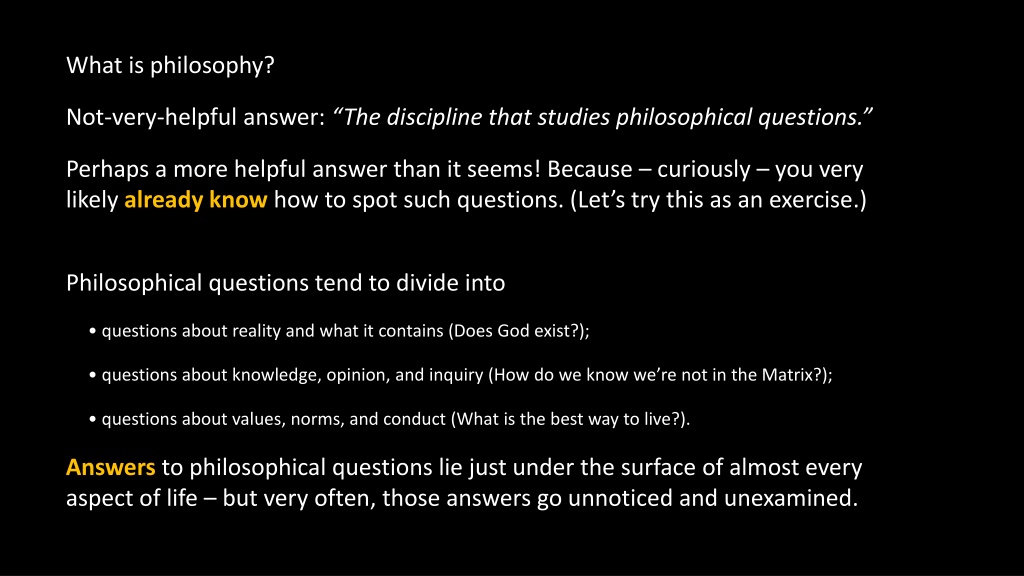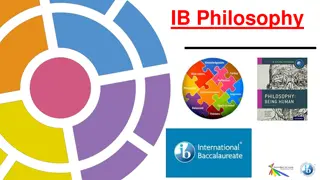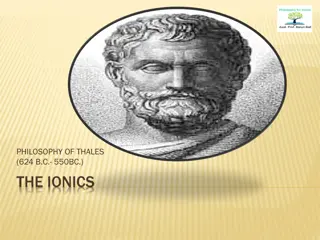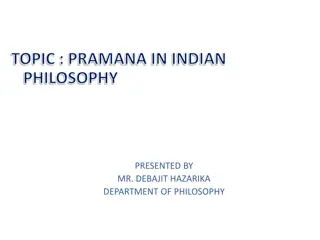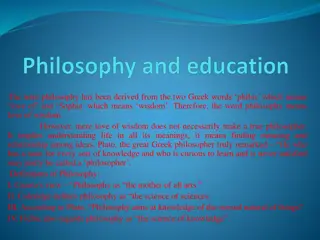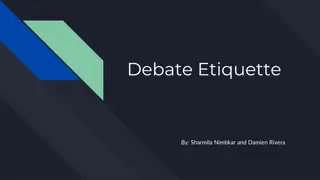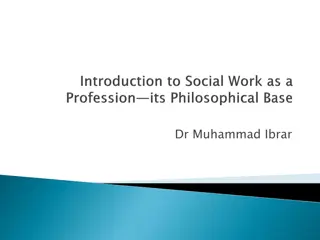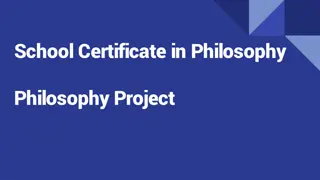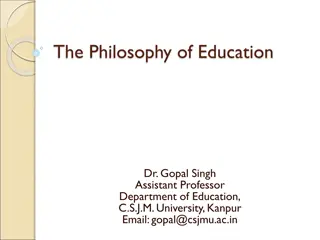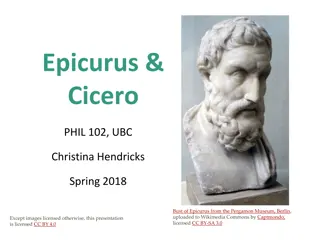Understanding Philosophy: A Guide to Philosophical Questions and Debate
Philosophy delves into questions about reality, ethics, and knowledge. Studying philosophy involves constructing logical arguments to explore and understand these fundamental inquiries deeply. As a student, you'll develop critical thinking skills to engage in philosophical discussions and analyze different viewpoints. The department emphasizes creating a welcoming yet challenging atmosphere where freedom of speech is valued. In the academic field, there is a push for diversity and inclusivity to ensure varied perspectives are represented.
Download Presentation

Please find below an Image/Link to download the presentation.
The content on the website is provided AS IS for your information and personal use only. It may not be sold, licensed, or shared on other websites without obtaining consent from the author. Download presentation by click this link. If you encounter any issues during the download, it is possible that the publisher has removed the file from their server.
E N D
Presentation Transcript
What is philosophy? Not-very-helpful answer: The discipline that studies philosophical questions. Perhaps a more helpful answer than it seems! Because curiously you very likely already know how to spot such questions. (Let s try this as an exercise.) Philosophical questions tend to divide into questions about reality and what it contains (Does God exist?); questions about knowledge, opinion, and inquiry (How do we know we re not in the Matrix?); questions about values, norms, and conduct (What is the best way to live?). Answers to philosophical questions lie just under the surface of almost every aspect of life but very often, those answers go unnoticed and unexamined.
Okay, so how do we study these questions? In a variety of ways, but at their heart is the use of argument. An argument, for us in the Philosophy department, is not a fight. It is not necessarily even an attempt to persuade. Instead, it s an attempt to lay out a viewpoint on some philosophical question by constructing a careful, logically coherent chain of reasoning in support of some answer to that question. Your argument succeeds when it renders your viewpoint intelligible, interesting, and plausible; puts your audience in a position to critique that viewpoint, with an eye toward making it more sophisticated and even more interesting and plausible.
Whats it like being a student in a philosophy class? Right from the start, you ll confront the challenge of answering philosophical questions for yourself. In philosophy, there s no gap between studying and doing! To help you, we do our best to teach you a certain way of writing; a certain way of reading; a certain way of discussing. (And yes, we teach you a lot of content as well. But skills are front and center.) The aim is to put you in a better and better position to spot and work out answers to philosophical questions, and to help others do so as well. By the way, those skills won t just help you do philosophy! They are highly transferable.
What kind of culture do we try to create in our classes, and in our department? An atmosphere that is simultaneously highly welcoming and highly challenging. Welcoming, because philosophy belongs to all people in equal measure: you all have the ability to do it; you all have the ability to get better at it; you can all find it immensely rewarding to do so. Challenging, because you will regularly confront good reasons to doubt things you believe. To help maintain this culture, we emphasize two freedoms of speech : freedom from fear of reprisal for what you say; freedom to speak and be heard. We also emphasize the importance of using these freedoms responsibly!
How welcoming is academic philosophy, in general? From this source: https://blog.apaonline.org/2020/06/11/diversity-in-philosophy-departments- introduction/ In its 2018 membership data, the American Philosophical Association reports 26% women among members responding to a demographic survey, 74% men, and 0.2% something else . In its membership data from 2018, the APA finds 80% of respondents identifying as White/Caucasian, compared to 60% in the general U.S. population. This is a scandal. (With, in part, ugly historical origins.) In our department, one of our hopes is that we can make Harvard a place that undoes this scandal!
